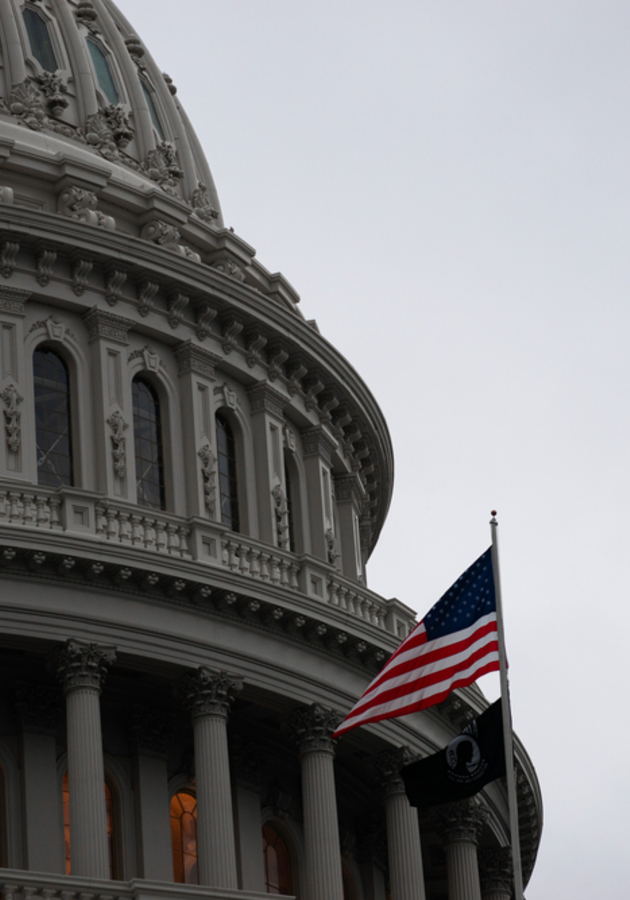First published in 1998, “Losing My Virginity” is the autobiography of the British entrepreneur and business magnate Richard Branson, covering the first 47 years of his life (or 57 in the updated anniversary edition). At 600 pages, it is a wide-ranging and all-encompassing memoir, so, rather than rushing through it, we decided to sum up in-depth only its first half – from Branson’s upbringing to his first entrepreneurial success.
So, get ready to learn what contributed to Richard Branson becoming, arguably, the most colorful and charming billionaire of the present age, and prepare to discover how his record label, Virgin, became the largest independent label in the world!
A family that would have killed for each other
Born in Blackheath, London, five years after the end of World War II, Richard Branson is the youngest child of Eve Branson, a former ballet dancer and air hostess, and Edward James Branson, a barrister. Raised in a well-to-do environment, he and his two younger sisters – Vanessa and Linda – enjoyed happy, if unconventional, childhood. “I cannot remember a moment in my life when I have not felt the love of my family,” Branson writes. “We were a family that would have killed for each other – and we still are. My parents adored each other, and in my childhood, there was barely a cross word between them.”
Exceptional parents, Eve and Edward considered their three children equals and valued their opinions as if given by adults. Eve – who had the spirit of an entrepreneur herself and earned extra income by selling handmade wooden tissue boxes and wastepaper bins to shops – was especially determined to make her children independent, so she constantly generated work for them and continually set them interesting challenges. One time, for example, when Branson was only 12 years old, his mother sent him to some relatives in Bournemouth – about 50 miles away from Branson’s home in Shamley Green, Surrey – on a bike and without any instructions. She didn’t even give him a bottle of water, telling him to find some along the way. Her goal: to teach her son the importance of stamina and a sense of direction.
This progressive approach to parenting seems to have run in the family. About seven years before this bike trip to Bournemouth, when Branson was just 4 years old, he had learned to swim because his aunt Joyce (his father’s sister) bet him ten shillings (almost 20 dollars in 2019, or 16 pounds) that he wouldn’t by the end of the family holiday. No matter how much he tried, Branson found swimming rather difficult, and, by the time the family left Devon, he was, indeed, no better than before going away for the trip.
However, on the way home, after spotting a river, Branson asked his father to stop the car to give swimming one last chance. Somehow, this time he did it. His aunt kept her side of the agreement and gave her 4-year-old nephew the money. “I looked at the 10-shilling note in my hand,” writes Branson. “It was large, brown and crisp. I had never held that amount of money before: it seemed a fortune.” This was the first money he earned in his life. And, as you know full well, he earned much more in the future.
“You will either go to prison or become a millionaire”
After spending some time at Scaitcliffe Preparatory School, Branson was enrolled in Stowe School, a big public school in Buckinghamshire for over 800 boys. In both places, he was not only trouble – but always in trouble. At Scaitcliffe, he almost was expelled because he had spent most of his nights in the room of the headmaster’s 18-year-old daughter, Charlotte. At Stowe, he was considered stupid and lazy. He was, in fact, dyslexic: at the age of 8, he still couldn’t read and was hopeless in math and sciences. Consequently, he was beaten regularly, once or twice a week, either for doing poor classwork or for confusing the date of the Battle of Hastings.
Early aware that he was not born to make it in the academic world, Branson tried his hand in the entrepreneurial: he and his fellow-school rebel Jonny Gems founded an interschool magazine, Student, when at 15. The newspaper grew out of their incessant need to share their feelings about the outdated rules and regulations at Stowe with other students – and the inability to do this via the existent school magazine, The Stoic.
It was difficult to find proper funding for an unpublished student magazine in the 1960s, but Branson seemed to excel at challenges such as this, and quickly found a way to trick serious companies into investing: he simply started telling them that their rivals had already invested and then made sure to turn this into reality by using the same tactic.
Soon enough, Student took off, and though it wasn’t profitable, it was making just enough money to keep things going. More importantly, it gave Branson a chance to meet some of the biggest music stars of the day, such as Mick Jagger and Keith Richards, or John Lennon and Yoko Ono, who all agreed to be interviewed for the magazine.
Expectedly, working for it was much more interesting to Branson than learning for school, so he stopped dedicating attention to his classes, going so far to even cheat his way out of his final exam (ancient history) so that he could start life as a journalist in London. “I was too preoccupied with Student to care about what grade I achieved,” he writes. On leaving school, his headmaster’s parting words to him were: “Congratulations, Branson. I predict that you will either go to prison or become a millionaire.” He was right on the spot – on both accounts.
Experienced in life, but virgins at business
Branson wasn’t the only one possessed by the power of music: this was the 1960s we’re talking about, so pretty much every teenager was into the Rolling Stones and the Beatles – to mention merely the two most popular bands at the time.
It wasn’t just an interest – it was an obsession: without an exaggeration, most of the people Branson knew at the time (himself included) loved music so much that they sometimes skipped meals to buy a Bob Dylan record for 39 shillings (almost 30 pounds in 2019, or 39 dollars!) at some of the big stores at the time, such as WHSmith. Music, after all, was more than music at the time: “it was political; it was anarchic; it summed up the young generation’s dream of changing the world.”
This gave Branson an idea: to sell records to people through mail order for a few shillings less than the price offered by WHSmith. He pitched the idea to the staff of Student, and they not only greenlighted it but also thought it such a good idea that they believed it should operate as a separate business with a new name. Soon enough, Virgin Mail Order was born: the name was proposed by one of the girls of the group because, in her words, they were all complete virgins at business. “And there aren’t many virgins left around here,” laughed one of the other girls. “It would be nice to have one here in name if nothing else.”
It soon became clear that students preferred to receive records from Virgin at their home address for 35 shillings (26 dollars) rather than buying them from WHSmith for 39 shillings (39 dollars). An ad placed in the last issue of Student brought the company a record mail order, and the fact they started receiving money in advance made the business risk proof. At least so Branson believed: in January 1971, the Post Office went on strike. Suddenly, the only way for Virgin to carry on was to transform. So, Branson started looking around for retail space.
Ring the bells… the tubular bells
Soon enough, the first Virgin record store was open on the second floor of a shoe store at the cheaper end of Oxford Street. Branson talked the shop owner into giving them the empty floor for free, by convincing him - a large, square Greek called Mr. Alachouzos - that the record store would attract lots of people who would all buy shoes past his window. He even told him what kind of shoes to sell: Doc Martens, of course. True to Branson’s predictions, the record store quickly became a hit with the young generation, as opposed to the frustratingly boring and bland large retail stores, it was hip and stylish. Selling the same records at lower prices also helped.
Many more stores followed. However, despite the growth, the expenses rose as well, so much so that the company was in debt. To solve the problem, Branson devised a criminal plan: after an accidental discovery that Belgium charged nothing in purchase tax on records, he began buying records wholesale on the premise that they were to be sold in Belgium; when, in fact, Branson only made the trip to the country and, received the appropriate stamps in return, then he went back to London and sold the records across the U.K.
By evading the purchase taxes, Branson was able to make about 5,000 pounds more profit than he could have done by the legal route. He planned to make four trips to Belgium to pay off the company’s 15,000-pound debt (amassed in little over a year), but after three successful trips, his activities were discovered. He was never tried because he agreed to repay any unpaid purchase tax and a hefty 60,000-pound fine (about 1 million pounds in today’s money).
His family had to remortgage the house and Branson had to loan money to pay the fine. However, he did earn a valuable lesson, and he resolved to never try anything illegal again. Instead, he tried to become a millionaire the right way: via innovation and originality. To this end, in 1972, he launched Virgin Records, with the intent of vertically integrating his businesses: promoting his own acts in his own stores.
The first release for Virgin Records was rather strange: it was 19-year-old Mike Oldfield’s debut album, “Tubular Bells.” This proved to be a masterstroke: when the album’s opening theme was used for the soundtrack of “The Exorcist,” Virgin Records was suddenly all the rage. Everybody – Rolling Stones, Peter Gabriel, UB40, Paula Abdul, and, most notoriously, the Sex Pistols – wanted to sign with the label. Soon enough, it became the largest independent label in the world.
The rest, as they say, is history: Virgin Group grew and grew, and it currently controls over 400 companies in various fields, most famously Virgin Atlantic Airways, which Branson built despite a “dirty tricks” campaign by British Airways. Throughout all of that, however, Branson didn’t change much: he is still the guy who’d risk it all for an opportunity and the guy who’d say “screw it, let’s do it” whenever an opportunity arises. And he’s still in it for the fun.
Final Notes
“What continues to set Branson apart is the unique – and, to some, baffling – nature of his ambition,” wrote Newsweek in a review of “Losing My Virginity.” “He isn’t interested in power in the usual sense of influencing other people… Boiled down to its singular essence, Richard Branson just wants to have fun.”
It is this simple and humble objective that sets apart Branson’s memoirs from the thousands of similarly styled “success stories”: colorful, honest, irreverent, “Losing My Virginity” is also immensely enjoyable and amusing! Branson doesn’t advertise here some false panacea for success: he just tells his story with the hope that some would-be entrepreneur out there will take a lesson from it. However, even if you don’t, this book is more than worth the read!
12min Tip
Live your life to the fullest. Set yourself huge, apparently unachievable challenges and try to rise above them. Experiment. Be prepared to try anything once. Have fun!




























